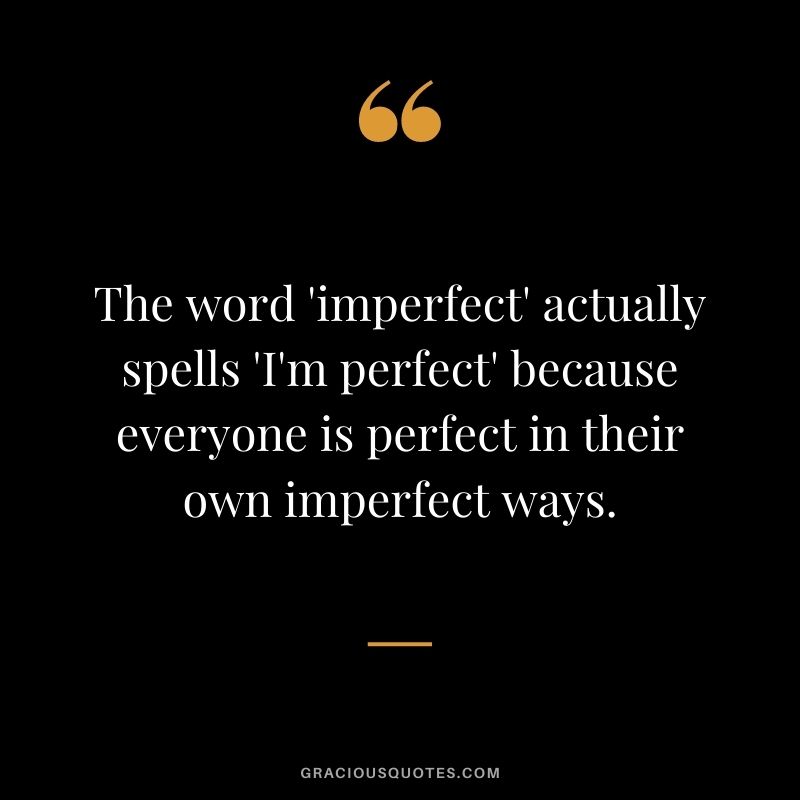Perfect Imperfect Meaning

In a world that often glorifies perfection, the concept of imperfection can seem daunting. Yet, it is within imperfection that true beauty often lies. The interplay between perfection and imperfection is a delicate dance that shapes our understanding of the world and ourselves.
At its core, the notion of perfection implies flawlessness, an ideal state devoid of errors or shortcomings. It’s the image we strive for, whether in our personal relationships, professional endeavors, or even in the pursuit of our own self-image. However, this relentless pursuit of perfection can lead to immense pressure, stress, and ultimately dissatisfaction.
On the contrary, imperfection encompasses the essence of humanity. It acknowledges our vulnerabilities, quirks, and idiosyncrasies. It reminds us that life is inherently messy and unpredictable. Yet, within this chaos lies the potential for growth, resilience, and genuine connections.
The paradox of perfection and imperfection is deeply ingrained in various aspects of life. In art, for instance, imperfections can evoke emotions and narratives that resonate with viewers far more deeply than sterile perfection ever could. Think of the irregular brushstrokes of Van Gogh or the asymmetrical designs of Gaudi’s architecture, which captivate audiences precisely because of their imperfections.
Similarly, in relationships, striving for perfection can create unrealistic expectations and unattainable standards. It’s in accepting each other’s flaws and imperfections that true intimacy and connection flourish. Imperfect relationships allow room for empathy, forgiveness, and growth, fostering deeper bonds that withstand the test of time.
Moreover, embracing imperfection is crucial for personal growth and self-acceptance. Perfectionism often breeds fear of failure, leading to stagnation and missed opportunities. On the other hand, acknowledging our imperfections opens doors to learning, experimentation, and self-discovery. It’s through our mistakes and shortcomings that we learn resilience, adaptability, and the true meaning of success.
In Eastern philosophies such as Buddhism, the concept of wabi-sabi celebrates the beauty of impermanence and imperfection. Wabi-sabi encourages us to find beauty in the flawed, the weathered, and the transient aspects of life. It teaches us to appreciate the uniqueness of each moment and to embrace the natural cycles of growth and decay.
Ultimately, the pursuit of perfection is a Sisyphean task—a never-ending journey with an elusive destination. In contrast, embracing imperfection allows us to find meaning and fulfillment in the here and now. It’s about embracing our flaws, celebrating our differences, and finding beauty in the imperfect tapestry of life.
Conclusion
In a world that often values polished exteriors and flawless facades, let us not forget the richness that lies in imperfection. It’s in the cracks, the blemishes, and the imperfections that true beauty, resilience, and meaning are found. So, let us embrace our imperfections wholeheartedly, for they are what make us beautifully human.





